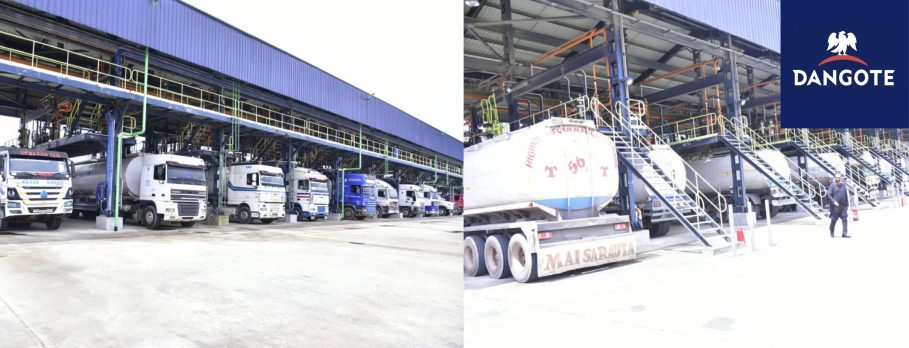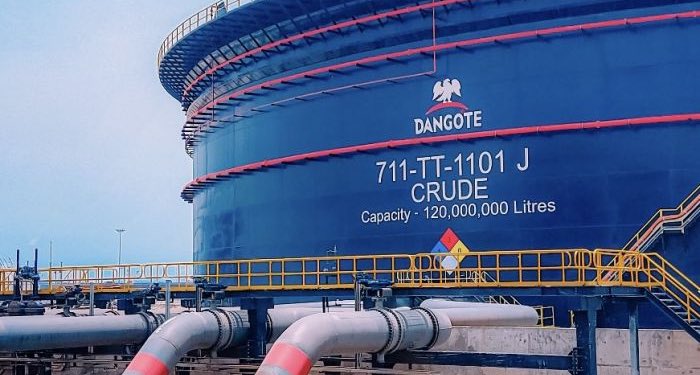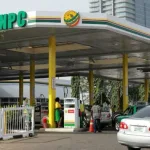The Central Bank of Nigeria (CBN) has expressed optimism that the supply of refined petrol from Dangote Petrochemical Refinery will reduce transportation costs, and food prices across the country.
The CBN Governor, Dr Olayemi Cardoso, made this known during a briefing at the end of the 297th Monetary Policy Committee (MPC) meeting in Abuja on Tuesday, 24th September.
Join our WhatsApp ChannelDr Cardoso, who read a communiqué containing resolutions of MPC members at the two-day meeting, said lifting petrol from the 650,000 barrels per day refinery is also expected to moderate foreign exchange demand for importation of refined petroleum products and also have a positive spillover effect on the country’s external reserve.
“The Committee also expressed optimism that the lifting of refined petroleum products from Dangote refinery will moderate transportation costs and significantly support the easing of food price pressures in the short to medium term,” Cardoso stated.
“This is also expected to moderate foreign exchange demand for importation of refined petroleum products, with a positive spillover on external reserve and improvement in the overall balance of payment position,” he added.
The CBN’s MPC also resolved to raise the Monetary Policy Rate (MPR), also known as the benchmark interest rate, by 50 basis points to 27.25 per cent from 26.75 per cent.
This is in line with the CBN’s current monetary tightening stance to tame the stubborn inflation.
The apex bank has raised the MPR for five consecutive times this year.
According to the Consumer Price Index reports by the National Bureau of Statistics (NBS), Nigeria’s headline inflation which had reached a 28-year high of 34.19 per cent in June, eased to 33.40 per cent in July and 32.15 per cent in August 2024. Food inflation eased to 37.52 per cent in August 2024, compared with 39.53 per cent in July. However, on a year-on-year basis, it was 8.18 per cent points higher compared to the rate recorded in August 2023 (29.34 per cent). The NBS report said the rise in food inflation on a year-on-year basis was caused by increases in prices of the following items, bread, maize, grains, guinea corn, bread, cereals yam, Irish potatoes, water yam, cassava tuber, palm oil, and vegetable oil, among others.

Commenting on food inflation, the CBN boss said: “the upside risks remained flooding, hike in energy prices, scarcity of PMS and most importantly, insecurity in farming communities.”
He added that considering the size of contribution of food component to the headline inflation, MPC recognised the efforts of the Federal Government in addressing insecurity in the farming community and stressed the need to remain steadfast.
He added that the Committee “applauded the ongoing effort of the Federal Government to bridge the food supply deficit through the duty-free import window for food commodities.”
The Dangote Refinery which began operations in January, started supply of Premium Motor Spirit (PMS) also known as petrol on 15 September.
This feat according to the Minister of Finance and Coordinating Minister of the Economy, Mr Wale Edun, is a right step in the direction of achieving energy self-sufficiency, and marks a turning point in Nigeria’s journey to full-scale industrialization.
Prime Business Africa had reported that the Nigerian National Petroleum Company Limited (NNPCL) lifted the first batch of petrol from the Dangote Refinery. According to an agreement between the refinery and NNPCL, mid-wifed by the Crude Sales in Naira implementation committee, the national oil company is the sole distributor of the refined petrol.
READ ALSO: NNPCL Lifts Petrol From Dangote Refinery
NNPCL set a new pump price of petrol after lifting the first batch of petrol from Dangote refinery. The new price increased from around N855 to N950 per litre in Lagos and as high as N1,019 in Borno, raising concerns about the impact on cost of things across the country.
Industry stakeholders including oil marketers and also many Nigerians have expressed dismay over the fact that price of refined petrol from the $20 billion facility is higher than imported ones.
While there are assurances that when the NNPCL commences sale of crude oil in Naira to the refinery in line with the crude sales in naira agreement, the price of petrol may come down, some analysts aver that the price is determined by exchange rate.
The price of petrol has skyrocketed since the removal of subsidy on the commodity last year, leading to high costs of energy and transport with spillover effect on other things in the country.
Victor Ezeja is a passionate journalist with six years of experience writing on economy, politics and energy. He holds a Masters degree in Mass Communication.


















Follow Us